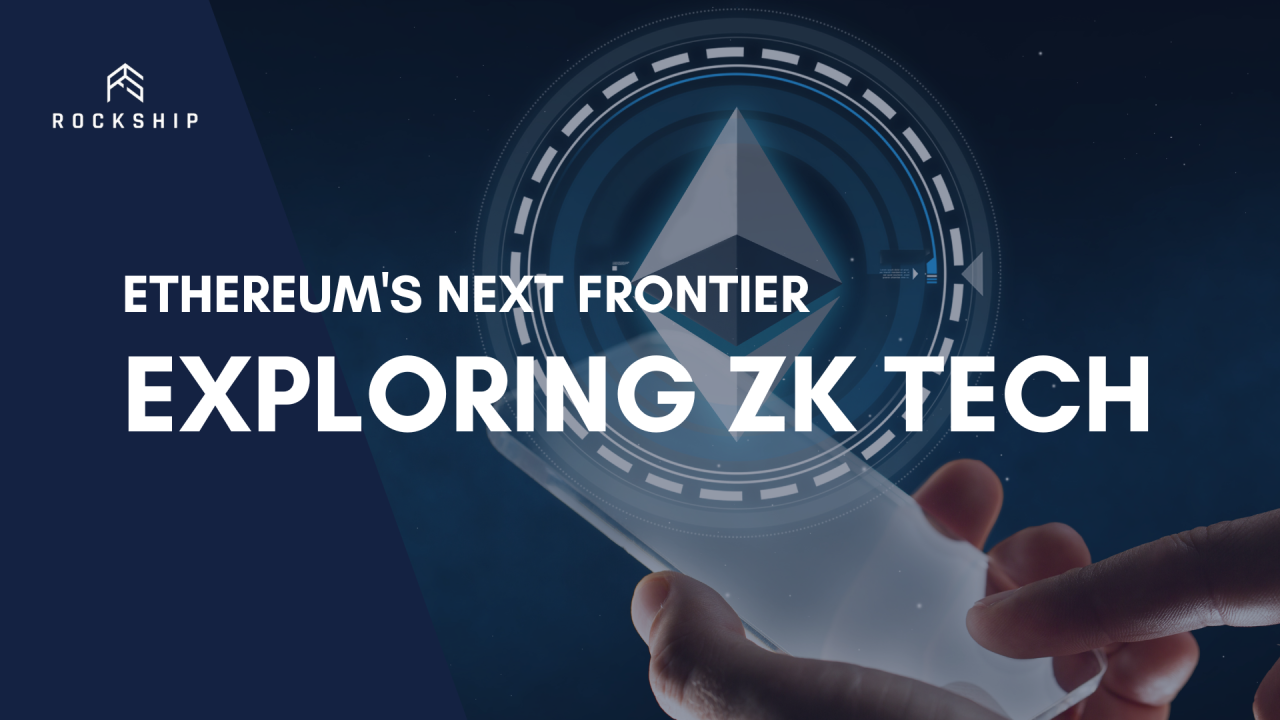As an Ethereum enthusiast, you're likely fascinated by the potential of decentralized finance and smart contracts to disrupt traditional industries. However, privacy has remained an elusive feature of public blockchains. While anonymity is often associated with nefarious behavior, privacy is crucial for mainstream adoption of blockchain technology. Enter zero-knowledge proofs, a class of protocols that allow one party to prove that a statement is true without revealing any other information. Ethereum has plans to integrate zero-knowledge tech to enable private transactions and smart contracts. If successful, this could open up an array of new use cases for DeFi and accelerate mainstream interest in Ethereum. In this article, we explore how zero-knowledge proofs work and their implications for the future of Ethereum.
What Is Zero-Knowledge (ZK) Technology?
Zero-knowledge (ZK) technology allows two parties to prove to each other that a statement is true without revealing any additional information. ZK proofs are an important development for Ethereum and blockchain technology as a whole.
To understand ZK tech, consider this example: You want to prove you're over 21 without showing your actual birthdate. A ZK proof system could verify your claim without revealing personal details. This protects privacy while establishing truth.
For Ethereum, ZK tech enables private transactions and smart contracts. Two parties can conduct transactions without disclosing details to the public blockchain or other entities. ZK proofs also allow for "validiums" - private smart contracts where contract details and state changes stay private between parties.
ZK technology relies on complex mathematics and cryptography to function. Proving a statement's validity without revealing information requires generating "proofs" that can be verified as accurate while keeping data private. ZK-SNARKs and ZK-STARKs are two types of ZK proofs used for blockchain applications.
In summary, ZK technology allows for greater privacy and confidentiality on Ethereum and other blockchains. By proving a statement's truth without revealing additional details, ZK tech enables private transactions, smart contracts, and other applications where sensitive data must remain concealed. ZK proofs are poised to expand Ethereum's capabilities and functionality significantly in the coming years.
ZK on Ethereum
As Ethereum continues to evolve, zero-knowledge (ZK) technology may play an increasingly significant role in its development. ZK proofs allow one party to prove to another party that a statement is true without revealing any information beyond what is necessary for the proof.
On Ethereum, ZK tech could enable greater privacy and scalability.For privacy, ZK proofs may allow users to conduct transactions without exposing transaction details like the sender, recipient, or amount. This could increase adoption of Ethereum for sensitive use cases. For scalability, ZK proofs may facilitate rollups, which can batch hundreds of transactions into a single transaction on the Ethereum mainnet. This could drastically improve throughput and lower gas fees.
However, ZK tech also presents challenges. ZK circuits, which generate the proofs, are complex to construct and computationally intensive to generate and verify. This could impact scalability if not addressed. There are also open questions around the user experience of ZK tools and how to ensure their security and correctness.
If these challenges can be overcome, ZK technology may allow Ethereum to achieve greater privacy, scalability, and mainstream adoption without compromising its security or decentralization. The potential impact is substantial, and ZK research will likely remain an active area of development for Ethereum in the years to come.
The benefit of ZK Tech
Increased Privacy and Security
Zero-knowledge (ZK) technology allows Ethereum users to conduct transactions and interactions without revealing unnecessary personal information. By using ZK proofs, you can prove that certain information is true without revealing the actual information itself. This allows for greater privacy in transactions while still maintaining security on the blockchain.
For example, with ZK technology, you could verify your identity to access certain services or applications without providing your personally identifiable details. This prevents sensitive data like names, addresses, and account numbers from being exposed on the public blockchain. ZK tech also allows users to conduct private transactions where the amounts and recipients are hidden. This protects people's financial privacy and could encourage more mainstream adoption of cryptocurrencies.
Overall, the implementation of ZK technology provides Ethereum users with a higher level of privacy and security. By shielding sensitive data and transaction details from the public, people can feel more comfortable using Ethereum's platform without compromising their personal information or financial privacy. This is an important step toward making Ethereum more practical and user-friendly for a wide range of applications.
The Future of ZK Tech on Ethereum: What to Expect Next
Increased Privacy and Security
As zero-knowledge proofs continue to advance, Ethereum will likely implement the technology to enable greater privacy and security. With ZK-SNARKs and ZK-STARKs, Ethereum users may be able to conduct transactions without revealing the details of their holdings or actions. This could allow DeFi protocols and dApps to provide confidentiality that protects users’ sensitive data and transactions.
Scaling Improvements
Zero-knowledge tech may help Ethereum scale to higher throughput and faster transaction finality. ZK-Rollups bundle hundreds of transfers off-chain and generate a cryptographic proof that can be verified on-chain. This could reduce congestion on Ethereum, lowering gas fees and accelerating confirmation times. ZK-Rollups may provide a layer 2 scaling solution that maintains Ethereum’s security.
Interoperability
Cross-chain interoperability and composability could be enabled by zero-knowledge proofs. ZK-Rollups may allow Ethereum to interact with other blockchains in a decentralized manner without sacrificing security or decentralization. This could expand Ethereum’s capabilities and make decentralized finance more accessible and useful to mainstream audiences. However, cross-chain bridges also introduce new risks that would need to be addressed.
In summary, zero-knowledge technology may help Ethereum improve privacy, security, scalability, and interoperability if implemented successfully. However, ZK-proofs are still a nascent field, and more research and development is needed to realize their full potential. Ethereum users should keep a close eye on progress in this promising area of blockchain technology.
Conclusion
As Ethereum continues to push the boundaries of blockchain technology,zero-knowledge proofs represent the next frontier of innovation. By enabling private transactions and scalability, this cutting-edge cryptography stands to unlock Ethereum's full potential. For you as an investor or developer, now is the time to start learning about and experimenting with zero-knowledge tech. Although still a nascent field, it will likely form the bedrock of Ethereum's future. Staying ahead of the curve on advances like this can provide a competitive advantage and help you build the decentralized apps of tomorrow. The future is bright for Ethereum, and zero-knowledge proofs will light the way.



